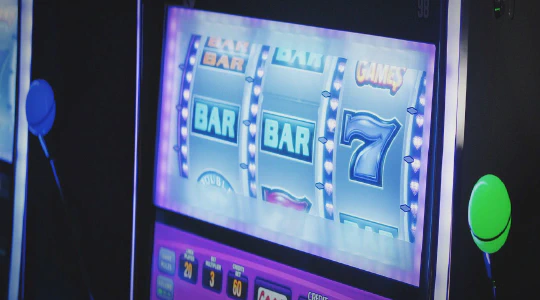Understanding 10 to 1 Odds: What They Mean and How to Win
When it comes to betting, understanding odds is crucial. It helps you make informed decisions, calculate potential payouts and minimize risks. One of the most common odds formats is the 10 to 1 odds, also known as 10:1 or 10/1.
In this guide, we will explain what 10 to 1 odds mean and how to calculate them. We will also look at some common scenarios where 10 to 1 odds are used, such as in horse racing, sports betting and casino games. By the end of this guide, you will have a complete understanding of 10 to 1 odds and how to use them to your advantage.
Before we dive into the specifics of 10 to 1 odds, it is important to understand the basics of odds. Simply put, odds represent the likelihood of a particular outcome occurring. They are usually expressed as a ratio, such as 5 to 1 or 2.5 to 1. The first number in the ratio represents the amount you can potentially win while the second number represents the amount you need to bet to win that amount.
Understanding 10 to 1 Odds: A Complete Guide
What are Odds?
Odds are a way of expressing the chance or probability of something happening. They help us understand the likelihood of an event occurring and are often used in sports betting, gambling, and finance.
Odds can be expressed in different formats, including decimal, fractional, and American. Decimal odds are the most common in Europe, while fractional and American odds are more common in the UK and US, respectively.
Decimal odds represent the total payout for a winning bet, including the original stake. For example, decimal odds of 2.5 mean that for every $1 bet, the total payout would be $2.50 if the bet wins Mostbet.
Fractional odds represent the ratio of the amount that will be won to the amount that is staked. For example, fractional odds of 5/1 mean that for every $1 bet, the total payout would be $6 if the bet wins (including the original stake).
American odds are expressed as positive or negative numbers. Positive odds indicate the amount of money that would be won on a $100 bet, while negative odds indicate the amount that would need to be bet to win $100.
How Are Odds Calculated?
The process of calculating odds can vary depending on the type of event being bet on. Generally, odds are calculated based on the probability of an outcome occurring. The higher the probability, the lower the odds and vice versa.
In the case of sports betting, bookmakers will take into account multiple factors when calculating odds, including the team's recent form, injuries, and the opponent's strength. From this information, they will come up with the probability of each team or player winning the game or match.
For example, if a bookmaker thinks that Team A has a 50% chance of winning a football match against Team B, they will set the odds at 2.00. This means that if a $10 bet is placed on Team A to win, the potential payout will be $20 (including the initial stake).
It's important to note that odds can also be influenced by the amount of money being bet on each outcome. If a large amount of money is being placed on one team, the bookmaker may adjust the odds to balance the amount being wagered on each side.
Overall, understanding how odds are calculated is important for anyone looking to place a bet. By understanding the probability of an outcome and how it affects the odds, bettors can make more informed decisions about where to place their money.
Understanding 10 to 1 Odds: What Do They Mean?
When it comes to betting and gambling, understanding odds is an important part of making informed decisions. 10 to 1 odds means that for every $1 you bet, you will win $10 if you are correct. This can be expressed as a ratio of 10:1, indicating that there is a 1 in 11 chance of the event occurring.
Understanding how odds work can be helpful in determining the potential payout for a bet. In the case of 10 to 1 odds, a winning bet of $10 would result in a $100 payout. However, it's important to note that the odds do not guarantee a win and should be weighed against the risk of the bet.
In order to make informed decisions, it is important to have a thorough understanding of the odds being offered. 10 to 1 odds may seem appealing with the potential for a high payout, but it's important to consider the likelihood of the event occurring and any potential risks involved.
- To sum it up:
- 10 to 1 odds means that for every $1 bet, a payout of $10 is possible
- This indicates a 1 in 11 chance of the event occurring
- It's important to consider the likelihood of the event occurring and any potential risks involved
Are 10 to 1 odds good?
If you're new to sports betting, understanding odds can be confusing at first. But once you get the hang of it, you can use this knowledge to your advantage to make informed bets and potentially win big. When it comes to 10 to 1 odds, you may be wondering if they are good or not.
Essentially, 10 to 1 odds means that if you bet $1, you could potentially win $10. This may seem like a tempting offer, but it's important to remember that the higher the odds, the lower the chances of winning.
Whether or not 10 to 1 odds are good depends on a variety of factors, including your budget, the sport or game you're betting on, and your confidence in the outcome. It's always important to do your research and make informed bets instead of risking money on a whim.
While 10 to 1 odds may be appealing, they are not necessarily a guaranteed win. It's important to weigh the potential payout against the likelihood of winning before placing your bet. Remember, there's always an element of chance involved in sports betting, so it's important to gamble responsibly.
How to Calculate Your Winnings with 10 to 1 Odds?
If you want to figure out how much money you could potentially win with a bet that has 10 to 1 odds, the calculation is pretty simple. First, you need to determine the amount of money you are planning to bet. Let's say you're going to bet $10.
Next, you need to multiply the amount of your bet by the 10 to 1 odds ratio. So, $10 x 10 = $100. This means that if you win, you will receive $100, which includes your original $10 bet and $90 in winnings.
It's important to remember that with odds like 10 to 1, you have a higher chance of losing than winning. In this scenario, the bookmaker is essentially saying that there is a 10% chance of the event happening and a 90% chance of it not happening. So, it's crucial to only bet what you can afford to lose and to do your research before placing any bets.
Finally, it is worth noting that different bookmakers may have slightly different odds for the same event, so it's always a good idea to shop around and compare odds before placing a bet.
Examples of 10 to 1 Odds
10 to 1 odds are commonly found in the gambling world where they represent the likelihood of a particular outcome. For instance, if the odds of winning a race are 10 to 1, it means that you'll win once in every 11 attempts. Here are some examples of 10 to 1 odds:
- A sports team is given odds of 10 to 1 to win the championship
- A horse is given odds of 10 to 1 to win a race
- A game show contestant is given odds of 10 to 1 to win a prize
- A lottery ticket has odds of 10 to 1 of winning the lowest prize amount
As you can see, 10 to 1 odds can be applied to various situations, but they all share the same concept of representing the probability of winning or losing. It's important to remember that odds are not a guarantee of a particular outcome and should be used as a guide only.
How to Increase Your Chances of Winning with 10 to 1 Odds?
While 10 to 1 odds may seem like a longshot, there are several ways to increase your chances of winning. Here are some tips:
- Do Your Research: Before placing your bet, do your research on the team or player you are betting on. Look at their past performances, any injuries or changes in their lineup, and the conditions of the game or event.
- Learn the Game: If you are betting on a sport you are not familiar with, take the time to learn the rules and strategies of the game. This will give you a better understanding of the odds and what to look out for.
- Manage Your Bankroll: Set a budget for yourself and stick to it. Do not bet more than you can afford to lose. This will keep you from taking unnecessary risks and help you stay in the game longer.
- Shop for the Best Lines: Different sportsbooks may have different odds for the same event. Shop around and find the best line before placing your bet. This can significantly increase your potential payout.
- Consider Betting on Underdogs: While betting on favorites may seem like the safer option, betting on underdogs can often result in higher payouts. Look for opportunities where the underdog has a good chance of winning.
Remember, while these tips may increase your chances of winning, there is always a risk involved in betting. It is important to gamble responsibly and never bet more than you can afford to lose.
When should you not bet on 10 to 1 odds?
If you are new to betting and are still trying to figure out the odds of winning, it's best to avoid betting on 10 to 1 odds. This is because the risk of losing is quite high with this type of odds, especially if you don't have much experience with betting. It's important to remember that high odds don't always mean high returns. You could end up losing more money than you win if you bet on high odds without understanding the risks involved.
Another scenario in which you should avoid betting on 10 to 1 odds is when the probability of winning is low. While the potential return may be attractive, there are many other factors to consider when placing a bet. These include the track record of the horse or team you are betting on, their form leading up to the race or game, and the current weather conditions. All of these factors can influence the outcome of the event and make it difficult to predict the winner accurately.
Lastly, if you are on a tight budget, it's best to avoid betting on 10 to 1 odds. This is because you will need to place a larger bet in order to win a significant amount of money. If you are not prepared to lose that amount of money, it's best to stick to lower odds and smaller bets that you can afford. Remember, the key to successful betting is to be patient, disciplined, and knowledgeable about the sport or activity you are betting on.
Risks of Betting on 10 to 1 Odds
Betting on 10 to 1 odds may seem appealing to many people because of the potential for a large payout. However, it is important to understand the risks involved before placing a bet.
First and foremost, the odds of winning on a 10 to 1 bet are relatively low. This means that there is a high likelihood that you will lose your bet and not receive any payout at all. It is important to carefully consider this before placing any bets.
Additionally, it is important to remember that betting always involves a level of risk. No matter how confident you may be in your chosen outcome, there is always a chance that you will lose your bet. It is important to only bet what you can afford to lose and to never chase your losses.
Another risk to consider when betting on 10 to 1 odds is the potential for addiction. While gambling can be a fun and exciting activity, it can also become addictive for some individuals. It is important to gamble responsibly and seek help if you find that you are struggling to control your gambling habits.
Overall, while betting on 10 to 1 odds can be tempting, it is important to weigh the potential risks and rewards before placing any bets. Remember to always gamble responsibly and seek help if you find that you are experiencing any negative consequences as a result of your gambling habits.


